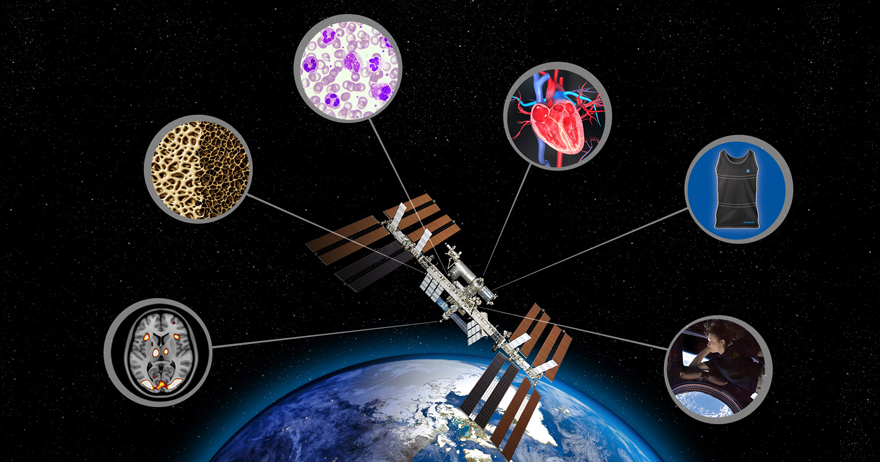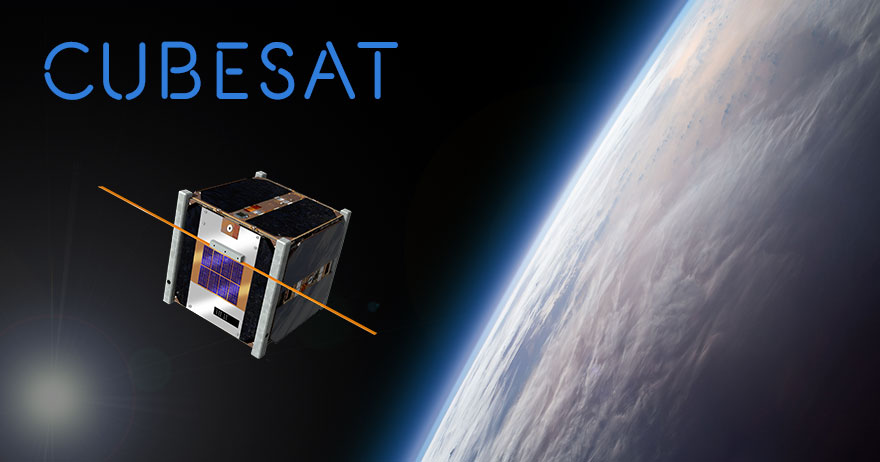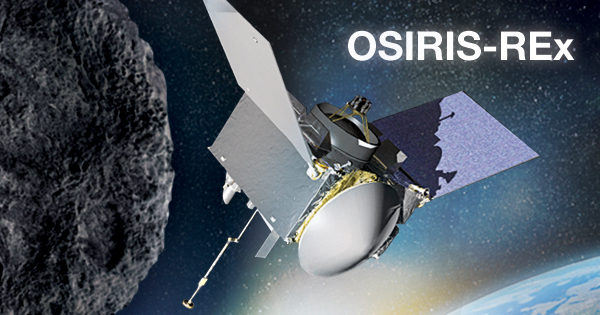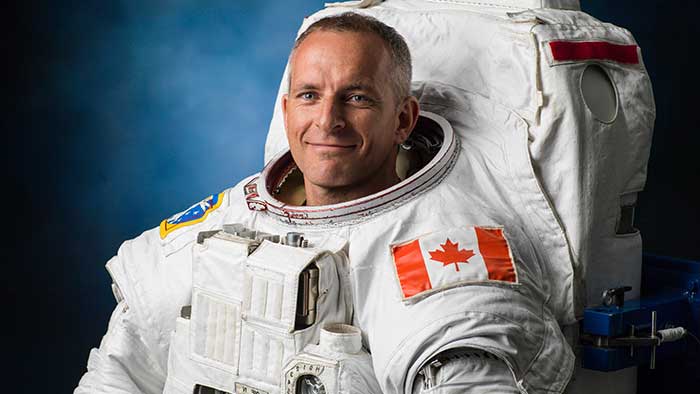Coming up in 2018 for the Canadian Space Agency
After all of 2017's amazing moments and space discoveries, we have another exciting year ahead of us! From mapping an asteroid to sending a Canadian to space, here are five key projects that will make 2018 a year to remember for the Canadian Space Agency (CSA).
Five key space projects that will make 2018 a year to remember for the CSA. (Credit: CSA, MacDonald, Dettwiler and Associates Ltd. (MDA), NASA, NASA/Goddard Space Flight Center, University of Alberta)
January–December 2018 – Canadian health science experiments will be conducted aboard the International Space Station

As space agencies from around the world are preparing to send people farther into the solar system, keeping astronauts safe and healthy during long missions will be critical. Canadian science conducted aboard the International Space Station (ISS) will help us better understand and offset the harmful effects of space on the human body (e.g. radiation exposure, which is a risk factor for cataracts and cancer; bone loss; muscle shrinkage; arterial stiffness; and weaker immune system).
In 2018, these Canadian experiments and biotechnologies will be on the ISS:
This ground-breaking science in space will help make space travel safer for humans and benefit people on Earth who suffer from similar ailments as astronauts due to isolation, aging, illness or a sedentary lifestyle.
April 2018 – Canadian students will be selected to participate in a real space mission

In April 2018, student teams from all over Canada will be selected to participate in the Canadian CubeSat Project.
Through this project, students from across the country will take part in a real space mission by designing, building and operating their own CubeSat (miniature satellite), which will be launched into space!
This hands-on experience is an ideal way to engage and train Canada's next generation of space innovation leaders, scientists and entrepreneurs. The participants will acquire expertise in a wide variety of areas and develop invaluable skills to transition into the workforce.
Between July and October 2018 – Launch of three observation satellites to better monitor our planet

This year, Canada's RADARSAT Constellation Mission (RCM) will be launched into space. RCM is a constellation of three satellites that will work together to have daily access to 90% of the world's surface.
RCM will be used to support Canadian and international priorities that will benefit people on Earth. These priorities include:
- climate change monitoring;
- keeping people safe with timely disaster management (mitigation, warning, response and recovery);
- ecosystem monitoring (agricultural sites, wetlands, forests and coastal zones); and
- maritime surveillance (ice, surface wind, oil pollution and ship detection).
The launch is expected to take place between July and October 2018.
August 2018 – The OSIRIS-REx spacecraft will begin approaching asteroid Bennu

After a two-year voyage in space, the OSIRIS-REx spacecraft will begin approaching asteroid Bennu in August 2018. A few months later, the Canadian laser instrument on the spacecraft will start making a 3D map of the asteroid. This task will take approximately one year.
Mission scientists will then use this information to choose the best location to take a sample of surface material from Bennu and bring it back to Earth for study.
When the sample returns to Earth in 2023, science teams will study it to help answer fundamental questions about how our solar system formed, how life began and how we can avoid asteroid impacts with Earth.
November 2018 – Canadian astronaut David Saint-Jacques will depart for the International Space Station

The next Canadian to fly to space, David Saint-Jacques, will set out for the ISS in mid-November 2018 as part of Expedition 58. David's mission is expected to last approximately six months, until May 2019.
During his mission, David will have many responsibilities, such as:
- co-piloting the Soyuz;
- serving as the crew medical officer;
- acting as a robotics specialist;
- being the mission specialist for the European Space Agency's Columbus laboratory;
- participating in science experiments;
- helping maintain the ISS; and
- sharing his experience with the world through various communications and outreach initiatives.
This will be David's first space flight, and he will be the first Canadian to fly to space since Chris Hadfield's mission in 2012–2013.
